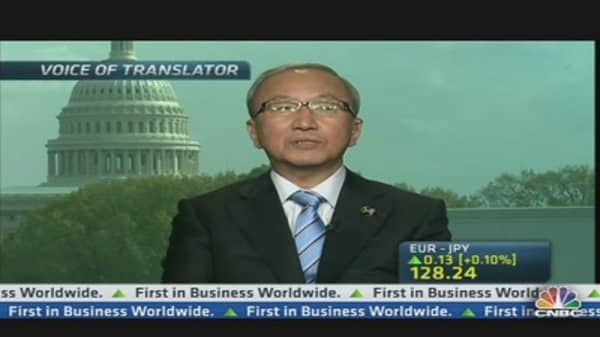South Korea's 17.3 trillion won ($13.5 billion) stimulus package announced this week is essential to keeping Asia's fourth largest economy on track, and without it the country could face similar fiscal woes to the United States, said Hyun Oh-Seok, the nation's finance minister.
"The [country's] economic recovery is appearing slower than expected, so that's likely to spell a short fall in tax revenue. Without this measure we could face a similar situation as the U.S. 'fiscal cliff' that could worsen South Korea's economic prospects," he told CNBC on Friday.
The U.S. avoided going over the "fiscal cliff" - a series of tax hikes and spending cuts that were to kick in on January 1. But after that lawmakers were unable to reach an agreement on spending cuts, and $85 billion in so-called "sequester" cuts came into effect on March 1.
"Our goal is to preserve tax revenue and boost additional spending to create jobs and revive the domestic economy," added Hyun.
The South Korean government on Tuesday unveiled 17.3 trillion won in spending, 5.3 trillion won of which will go towards creating jobs, aiding small to medium sized companies and bolstering property prices, and the remainder to covering a shortfall in tax revenues resulting from the economic slowdown.
(Read More: South Korea Steps Up Fight to Boost Economy)
In addition to a deceleration in economic growth, which slowed to 2 percent in 2012 from 3.7 percent a year earlier, the country faces rising debt levels.





